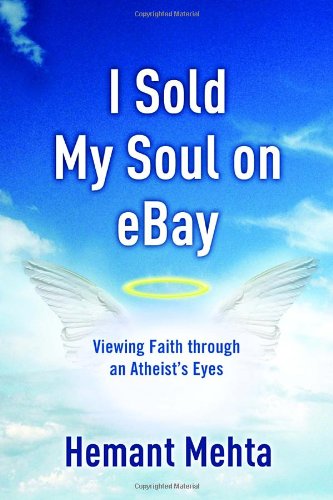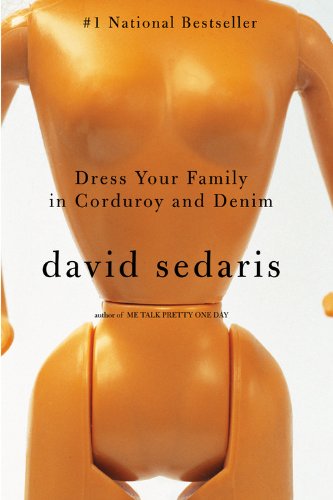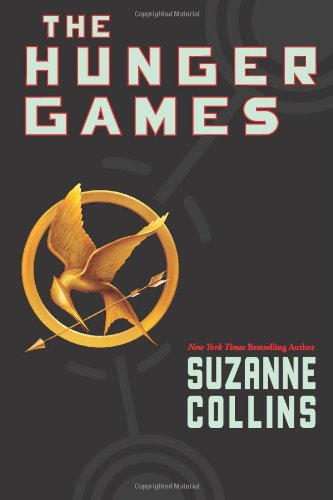I'd heard of this book a while back and started following The Friendly Atheist Hemant Mehta's YouTube videos. Later I started following his blog too. Now, I have even had some correspondence with him, in which he agreed to read my book and write a testimonial for it. It was high time I read that book that I'd heard of so long ago.
Mehta was first known as "the atheist who sold his soul on eBay". He explains in the book how, though he'd left his own religion as a youth and had become an atheist, he knew very little about other religions, Christianity in particular. He decided if he wanted to be sure of his atheism, he ought to look into other religions' understanding of God as well. He came up with the idea of auctioning off Sunday visits at church on eBay. For every $10 bid, he would spend one Sunday visiting the church of the bidder's choice. Expecting to get maybe a few bids tops, this seemed an easy enough experiment. Little did he expect the massive media response and a final bid of over $500. He was a little worried about 50 weeks of church, but the winning bidder was Jim Henderson, a former pastor and author of Evangelism Without Additives, who only requested he visit 15 churches of his choice and write reviews of them for his website.
Mehta visited churches of all shapes and sizes, from small country chapels to internationally renown megachurches. In this book, he breaks the churches into 4 categories, divided by size, and writes about his experiences, opinions, and suggestions for them as an atheist. He is pretty fair too. He writes about what he liked about each church and what he thinks would be better improved.
It was interesting for me, as someone who has been to so many churches myself, but always as a believer. In fact, that's the target audience of this book - believers. It was even published by a Christian publishing house with a foreword by Rob Bell. He does offer some great insights and advice.
As a former believer myself, though, I noticed a few areas in which it's obvious Mehta himself was never a Christian. (He was a Jain.) For instance, one of the things he likes least is when pastors spend an inordinate amount of their sermon quoting and reading Scripture. He felt it was hard to apply these sermons to his own life and preferred pastors who took a single verse or two and expounded upon it with information that was applicable to his life. This of course makes sense for an outsider, but for the insider, a Scripture-heavy sermon can be far more appealing to some Christians (like I was once). I know I hated "fluff" sermons but devoured the Scripture-laden ones. I felt those were the ones that were the "meatiest", and those churches were the most in-tune with God. To each his own, I suppose.
He also didn't like the services that spent a significant amount of time in singing. Once again, I think he missed the point. For believers, at least those like me, the singing is the best part, the part where we really poured our hearts out to God. It was deeply meaningful, even if the chorus was repeated a dozen times. For outsiders though, it was repetitive and way too long. He would like to see the singing end a little sooner with a lot less repetition. Maybe a lot of people do get bored with that part, but for many, that part could last all day.
On the other hand, he was spot on about just about everything else. I particularly (now) sympathize with his indignation of churches that called him "lost" and made him and other believers out to be sad, misguided, even evil people. That is my pet peeve now too. I never realized how insulting being called "lost" is. As a believer, I guess I never thought of the "lost" people in the audience hearing that as anything other than true, as if they were sitting there thinking, "Gee, I really AM lost... now do I get saved or harden my heart?" But I'll just reiterate what Mehta said - since becoming an atheist, I've never felt more "found" in my life!
The book is full of good suggestions, and to each church he had something complimentary to say. He really tried to get something out of each one. Some he enjoyed much more than others. Some gave him something to chew on as he went home. But ultimately, while he got a better understanding of the Christian faith, and even came away with some great life lessons, his atheism was not changed.
I recommend this book to believers and non-believers alike. If you want to know how your church comes across to outsiders, it's worth a read. He won't offend you. I'm serious. He isn't called "the friendly atheist" for nothing.
This book is good. I mean really good. I heard about it, like I hear about so many books, on NPR's Fresh Air. Asali Solomon was being interviewed about her debut novel Disgruntled, and the interview made me excited to read it. I had to wait until it came out, and then I had to wait until I had a spare $25 for the hardcover version, the only version currently available, but once it arrived, I couldn't wait to dive in.
The story follows young Kenya from childhood into early adulthood. Kenya was different. Not because she was black - there were lots of black children in her school - but because she celebrated Kwanzaa instead of Christmas and wasn't allowed to say the Pledge of Allegiance and didn't eat pork and didn't go to church. Her parents were black-nationalists, and Kenya was made fun of horribly for her family's beliefs. It's a coming-of-age story, with descriptions of all the childhood moments we can all relate to, regardless of race or religion. I loved that about the book. Solomon describes moments such as laughing and making fun of other kids even while on the inside knowing you too are the exact thing that you're making fun of, but not knowing what to do about it, you just keep on taunting to fit in. She describes the feeling of liking someone so much and thinking maybe they like you back and analyzing everything they do and say to figure it out, reminding you that if you are lucky enough to not be a teenager anymore, you would never want to be one again.
But more than that, I also loved the insight it gives into race and what it's like to be black or any other minority. Face it, when you're white and live in suburbia, you just don't have a clue. Sure you might "know" what kind of issues race poses, you might "understand" what others are feeling and experiences, but really, you can't truly "get" it when you've never been there. This book draws you deep, deep into Kenya's mind and heart, and you feel for a second you actually sort of "get" it.
I loved the characters, loved the story line, loved the realism, and was sad when the book ended. I wanted more. I want to know what happens to Kenya ultimately. What does she grow up to do? Who does she meet? What happens with her parents?
Consider this my definite recommendation for a book to add to your reading list.
This one was supposed to satisfy the "Mystery or thriller" category, but it was anything but scary or thrilling. It was somewhat mysterious. But truth be told, it was an impulse buy while getting groceries at Kroger, and I did indeed pick it based on it's cover. It said something about being a mixture of The Ring and The Grudge, both of which scared the poo-poo out of me, so I bought the book.
It was maybe like The Ring or The Grudge if those movies had been written for and by twelve year olds. Like The Shakespeare Stories did for Shakespeare. But I still confess I enjoyed the book, in a light-reading kind of way. The story is told through the point of view of the ghost of Okiku, a Japanese servant girl several centuries dead. She is the kind of ghost who avenges child murders, but when she meets Tark, a moody teenage boy with a strange essence, she begins to change.
Dun dun DUN!
But seriously, it's a book to read on the beach or in a bath, but don't bother if you're looking for something thrilling. Unless you're a twelve year old, though you might find R.L. Stine's Fear Street series more exciting. (Gawd, those used to scare me to death.)
I found this book in my bookshelf when I was arranging it a few weeks ago. I pulled this out and didn't recognize it at all. Where did this come from? Then I vaguely recalled my friend Devon lending it to me when I first moved back to the States, after lamenting to her how few books I had. She said it was funny; I put it somewhere and then completely forgot about it.
It looked easy enough, and with only a week left in May and not a lot of books to show for it, I decided to go for it. It's a collection of humorous memoirs, easy to digest quickly. At first, I didn't enjoy it. The first couple of stories came across to me as failed attempts at funny. The testimonials on the back promised gut-busting laughter and hilarity, and I just didn't really think it was funny at all. Until the third story, where an unexpected laugh broke from my chest. And as I went on, I came across moments that did elicit a good chortle from me. I began enjoying it a lot more, appreciating his sardonic humor. He makes fun of everyone and give no one a pass. I thought as I read it, "I could never be this disparaging to my family and friends! And therefore I will never be a comedic memoirist." I had to respect his lack of respect. It takes a lot of guts to make fun of your poor mother and father so much, your poor siblings so much, your poor life partner. It's easy to mock yourself, but to mock the people you love, who will groan and be pissed and slam the door in your face when they see what you've put in print? Heroic.
My daughter, Fi, has just worked her way through the Harry Potter series for a second time, and we figured it was time to introduce her to something new. The problem with an eight year old who reads on an eighth grade level is that books that are appropriate for her age are too short and easy, but books for her reading level are too mature. She wants to read The Hunger Games, but I need to read them first to see how mature they are. And I'll admit it, I wanted to read them myself anyway!

I've seen the first two movies, so I knew roughly how the book was going to go, but it's been a while, so a lot of things were still a surprise to me - even the end! I vaguely remembered how it ended, but I actually gasped at the dénouement.
It's easy reading but highly entertaining. This must be the thing with dystopian YA. It reminded me a lot of the Divergent series, right down to the first-person-present-tense. (What's with YA and first-person-present-tense?!) It didn't bother me most of the time though, which means Collins did it well enough.
I'm sure everyone knows what the story is about, but in case you don't: Once again, we are taken to a future dystopian society where the common people are treated poorly by the reigning, wealthy class. In this case, people are divided into districts, and each year, to remind the districts what happens when they rebel, the Capitol holds The Hunger Games, in which two tributes from each district are chosen to fight each other to the death on live TV in a controlled arena full of deathly hazards. Katniss Everdeen and Peeta Mellark are chosen from District 12, two people who barely know each other but still have a lot of connections and a little history. They are trained briefly then let loose in the arena to fight all the other tributes from all the other districts.
I'm now reading the second book in the series, checking off another box in the Reading Challenge, but to say which one would give too much away!
I am also of the opinion that at least Book 1 will be okay for Fi to read. It isn't as bloody as the movie (though there is definitely blood and death, but nothing she didn't find in the later Harry Potter books). The second one however might have some more mature romance themes, but I'll know how I feel about those after I'm finished. (The romance is the only reason I haven't handed Fi the Divergent books. I'm no prude, but I don't think my eight year old is even remotely interested in kissing yet, judging by the EW!s she cries while watching Disney teeny-bopper TV.)
To see what else I have read this year:
April
March
February
January





No comments:
Post a Comment
Leave your comments here.